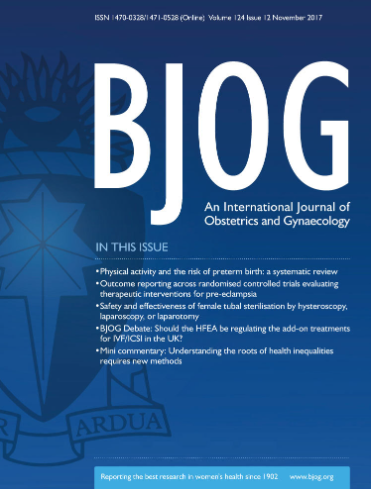Vulval Flap Reconstruction in Women With Benign, Preneoplastic and Malignant Vulval Conditions: A Prospective Study
Abstract
Objectives
To (i) evaluate the surgical morbidity, (ii) identify correlates of these and, (iii) explore whether flap reconstruction following vulvectomy improves patient symptoms and quality of life.
Design
Single arm prospective study.
Setting
Single tertiary vulval centre, UK.
Population
Consecutive cases of women undergoing radical vulvectomy and flap reconstructions for benign and (pre)invasive vulval conditions.
Methods
Prospective data collection from April 2020–February 2024. All women were given two validated questionnaires preoperatively and at 3-, 6- and 12-months to evaluate their satisfaction with the aesthetic, genitourinary and psychosexual outcomes.
Main Outcome Measures
Early and late complications within 30 days. Patient reported outcome measures preoperatively and post-reconstruction.
Results
136 flaps in 69 women were analysed. 92.6% (126/136) and 83.1% (113/136) flaps developed none-to-mild complications at 7 days, and between days 8 to 30, respectively. Five necrotic flaps in two patients were surgically debrided. All flaps had healed/healing at 30 days. We did not identify any correlates of complications. At 12 months, women reported an improvement in genital symptoms (p < 0.001). 80.4% (37/46) reported no urinary incontinence vs. 48.1% (26/54) preoperatively, p = 0.0038. 24.4% (11/45) were sexually active vs. 9.3% (5/54) preoperatively, p = 0.0410. More women felt attractive (p = 0.0498), were satisfied with their body (p = 0.0407) and comfortable in intimate situations (p = 0.0273). 88.9% (40/45) stated that reconstruction helped with acceptance of their cancer diagnosis and surgery.
Conclusions
Locoregional flap reconstruction has low surgical morbidity, leads to a significant improvement in genitourinary and psychosexual functions. In women with cancer, reconstruction supports women to cope with their diagnosis.

 求助内容:
求助内容: 应助结果提醒方式:
应助结果提醒方式:


